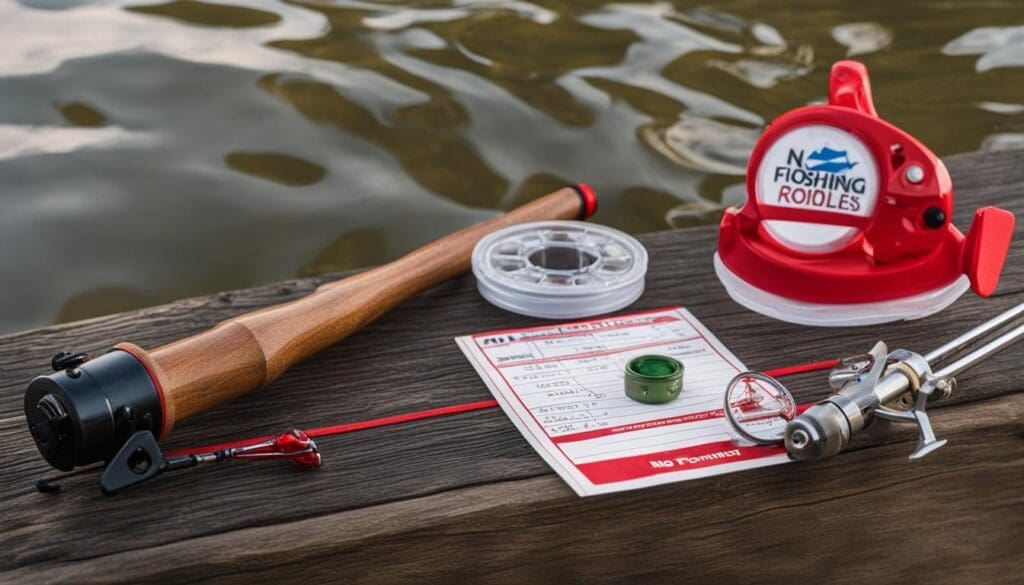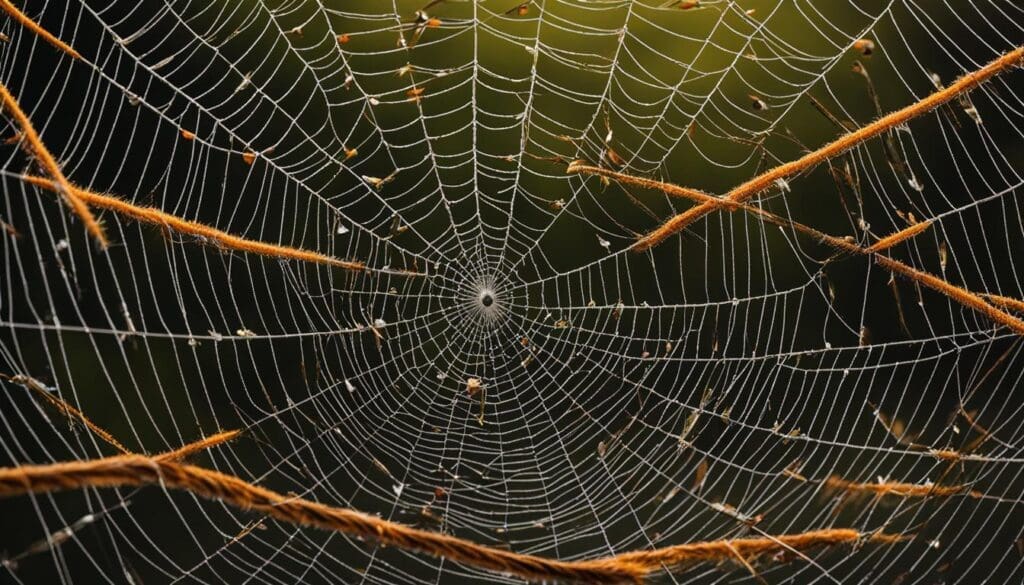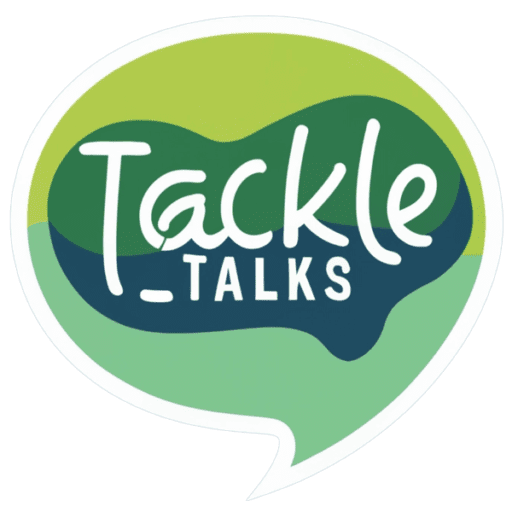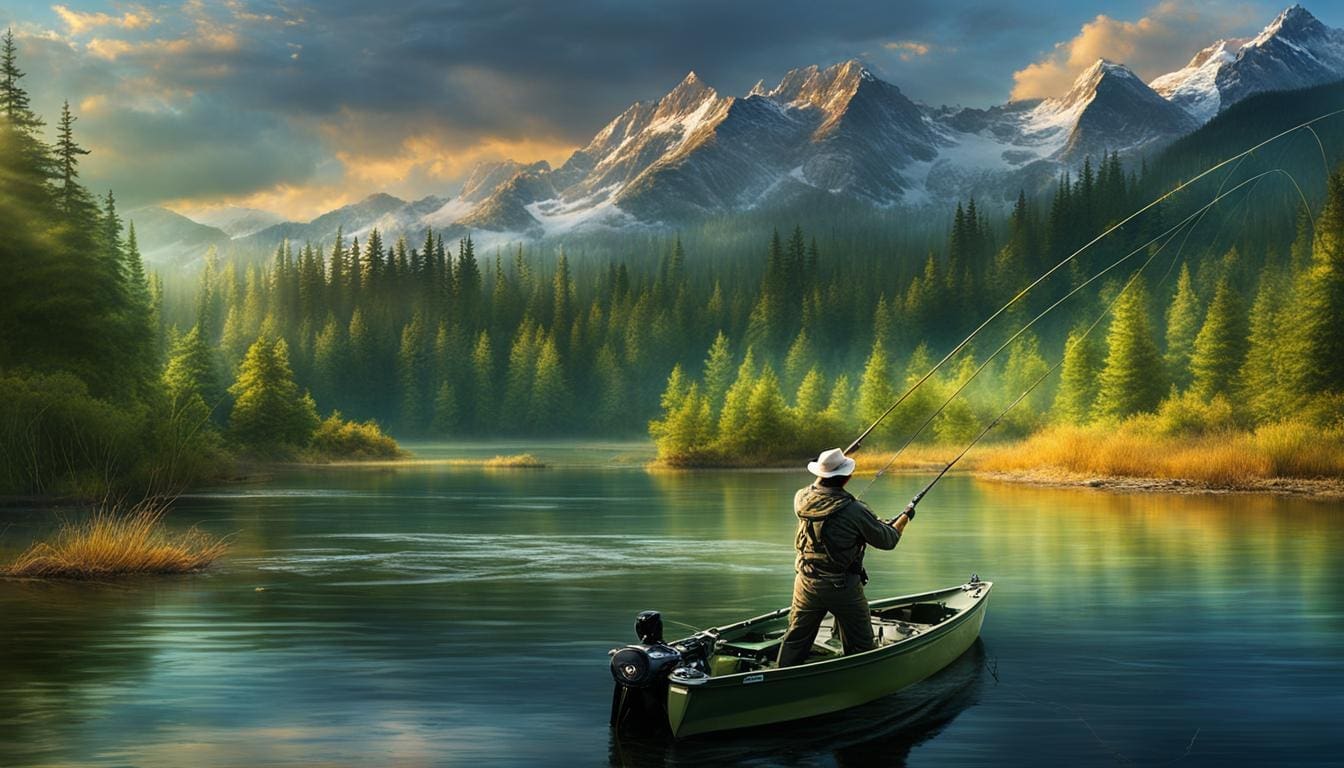Competitive angling is a popular sport that requires skill, knowledge, and strategy. To be successful in fishing competitions, anglers need to understand the best techniques and strategies. In this article, we will provide proven tips for competitive angling success, including information on fishing competitions, angler rankings, and tournament strategies.
Key Takeaways:
- Mastering angling techniques is crucial for competitive success.
- Research the fishing location and study fish behavior before the competition.
- Choose the right bait and lures for the target species.
- Network with other anglers and participate in competitive fishing communities.
- Knowing fishing hotspots can increase chances of success.
Angling Techniques for Competitive Success
When it comes to competitive angling, mastering the right techniques can make all the difference. Anglers who want to increase their chances of success in fishing competitions should begin by dedicating time to pre-fishing preparation. This involves researching the fishing location, studying fish behavior, and understanding the environmental factors that can affect the fish’s feeding patterns. By doing so, anglers can gain valuable insights that can help them strategize and plan their approach.
Bait and lure selection is another critical aspect of competitive angling. Anglers should carefully consider the species they are targeting and choose baits and lures that mimic the natural prey of the fish. Using the wrong bait can significantly reduce the chances of getting a bite. Experimenting with different types of baits and lures during practice sessions can help anglers determine what works best for the specific fish they are targeting in the competition.
In addition to proper bait and lure selection, mastering competitive casting techniques can give anglers an advantage in landing their catches. Techniques such as flipping, pitching, and casting accuracy play crucial roles in determining where the bait reaches and how it appears to the fish. Anglers should practice these techniques regularly to improve their casting precision and maximize their chances of success during competitions.
Overall, anglers who want to excel in competitive angling should focus on honing their angling techniques, investing time in pre-fishing preparation, and selecting the right bait and lures for the target species. By mastering these aspects, they can increase their chances of success and outperform their competition.
The Psychology of Competitive Angling
Competitive angling requires more than just physical skill and knowledge of angling techniques. It also involves understanding the psychology behind fishing. By delving into the psychology of competitive angling, anglers can gain insights that can greatly enhance their performance and overall success in fishing tournaments.
One aspect of angling psychology is the ability to read the water and understand fish behavior. This involves observing the water’s currents, temperature, and other environmental factors to determine where fish are likely to be located. By analyzing fish behavior, anglers can make informed decisions about the best spots to target and the most effective bait and lures to use.
Tournament networking is another important aspect of angling psychology. Building connections with fellow anglers allows for the sharing of tips, strategies, and insights. Networking can provide valuable information about fishing hotspots, techniques, and even equipment recommendations. Engaging with competitive fishing communities, both online and offline, can help anglers stay updated on the latest trends and developments in the sport.
Angler fitness
Physical fitness plays a vital role in competitive angling. Endurance and strength are necessary for long hours of casting, reeling, and maneuvering. Maintaining overall fitness through regular exercise, including cardiovascular workouts and strength training, can improve an angler’s stamina and performance on the water. Additionally, flexibility and agility can help anglers adapt quickly to changing fishing conditions, such as casting from different angles or adjusting to rough waters.
Overall, understanding the psychology of competitive angling can give anglers a competitive edge. By reading the water, understanding fish behavior, networking with other anglers, and maintaining physical fitness, anglers can enhance their skills and increase their chances of success in fishing competitions.
Fishing Hotspots for Competitive Anglers
When it comes to competitive angling, knowing the best fishing hotspots can make all the difference in your chances of success. Understanding fish behavior and habitat preferences is essential in identifying the most productive areas to target. By researching the fishing location, studying local fishing reports, and consulting with experienced anglers, you can uncover the hidden gems that will give you an edge over your competition.
To help you get started, here are some key factors to consider when evaluating fishing hotspots:
- 1. Fish behavior: Different species of fish have specific habits and preferences. Understanding their preferred feeding grounds, spawning areas, and migration patterns can help you pinpoint the best locations to target.
- 2. Water conditions: Factors such as water temperature, clarity, and current play a significant role in fish activity and feeding patterns. Pay attention to these conditions as they can guide you to areas where fish are more likely to be active.
- 3. Structure and cover: Fish seek shelter and food in areas with structure and cover, such as rocks, submerged logs, weed beds, and drop-offs. These areas provide hiding spots and opportunities for ambush, making them prime fishing hotspots.
- 4. Local knowledge: Experienced anglers who are familiar with the fishing location can provide valuable insights and recommendations. Networking with other competitive anglers and engaging in fishing communities can help you tap into their expertise and stay up-to-date on the latest hotspot discoveries.
Remember, fishing hotspots can change with the seasons and environmental factors, so it’s important to stay adaptable and continuously explore new areas. By combining your knowledge of fish behavior, water conditions, and local insights, you can enhance your angling techniques and increase your chances of landing that trophy-winning catch.
Table: Top Fishing Hotspots for Competitive Anglers
| Hotspot | Fish Species | Best Time to Fish | Recommended Techniques |
|---|---|---|---|
| 1. Lake X | Bass, Pike, Walleye | Spring, Fall | Jerkbaits, Jigging |
| 2. River Y | Trout, Salmon | Summer | Fly Fishing, Drift Fishing |
| 3. Coastal Area Z | Redfish, Snook | Winter, Spring | Topwater Lures, Live Bait |
| 4. Reservoir A | Catfish, Crappie | Year-round | Bottom Fishing, Bobber Fishing |
Table: Top Fishing Hotspots for Competitive Anglers
Keep in mind that these hotspots are just a starting point, and the best fishing spots may vary depending on the time of year, weather conditions, and other factors. As a competitive angler, it’s important to stay observant, adaptable, and always willing to explore new areas. By leveraging your knowledge, skills, and the guidance of fellow anglers, you can maximize your chances of success in fishing competitions.
Gear and Equipment for Competitive Angling
Using the right gear and equipment is essential for competitive angling. As anglers strive for success in fishing competitions, having the appropriate tools can make a significant difference in their performance. Here are some essential gear and equipment considerations for competitive anglers:
Rods:
Investing in high-quality rods is crucial. Consider factors such as flexibility, sensitivity, and durability to ensure optimal performance. Different types of rods are designed for specific fishing techniques and target species, so choose one that suits your preferred angling style.
Reels:
Choosing the right reel is equally important. Look for reels that offer smooth casting and retrieval, good line capacity, and sturdy construction. Match the reel to the rod and consider factors like gear ratio and drag system to meet your specific angling needs.
Lines:
Having the right fishing line is essential for competitive angling. Consider factors such as line strength, abrasion resistance, and visibility. Choose a line that suits the target species, fishing conditions, and angling techniques you will be employing.
Bait and Lures:
Competitive anglers should have a diverse selection of bait and lures. Research the target species’ preferences and make sure you have options that mimic their natural prey. Experiment with different colors, sizes, and presentations to increase your chances of enticing bites.
| Gear | Description | Price Range |
|---|---|---|
| Rod | High-quality and suitable for fishing techniques and target species | $50 – $400 |
| Reel | Smooth casting and retrieval, good line capacity | $70 – $500 |
| Line | Strong, abrasion-resistant, and suitable for fishing conditions | $10 – $50 |
| Bait and Lures | Diverse selection to mimic natural prey | $5 – $30 |
Moreover, it’s important to remember that competitive anglers should always adhere to sport fishing etiquette. This includes respecting other anglers’ space, practicing responsible catch and release, and following any specific rules or regulations set by the fishing competition. By maintaining a code of conduct, anglers can promote a positive and respectful environment for everyone involved in the sport.
Rules and Regulations in Fishing Competitions
Fishing competitions are not just about catching the biggest fish or landing the most catches. They also have specific rules and regulations that anglers must follow to ensure fair play and the preservation of fish populations. Each competition may have its own set of rules, but there are some common guidelines that apply in most fishing competitions.
One important rule in fishing competitions is the use of proper fishing gear and equipment. Anglers are typically required to use only legal and appropriate gear, such as fishing rods, reels, and lines that meet the competition’s standards. These regulations help maintain a level playing field for all participants and ensure that the competition remains fair and competitive.
Another crucial aspect of fishing competitions is adherence to catch and release practices. Many competitions have strict rules regarding the handling and release of caught fish. Anglers are often required to measure and record the weight of their catches accurately before releasing them back into the water. These regulations aim to protect fish populations and promote sustainable fishing practices.
Competitive Fishing Licenses
In addition to following fishing competition rules, anglers may also need to obtain competitive fishing licenses. These licenses are specific to participating in fishing competitions and may have additional requirements or fees beyond regular fishing licenses. It is essential for competitors to check the licensing requirements of the competition they plan to enter and ensure they have the necessary permits in place.
| Competition Rule | Explanation |
|---|---|
| Proper Bait and Lure Usage | Anglers must use only legal and approved bait and lures during the competition. |
| Fishing Zone Restrictions | Competitions may designate specific fishing zones where anglers are allowed to fish. |
| Size and Weight Limits | There may be regulations on the minimum or maximum size and weight of caught fish that can be brought to the weigh-in. |
| Time Limits | Competitions often have designated fishing hours, and anglers must adhere to these time limits. |
By understanding and following the rules and regulations of fishing competitions, anglers can participate in a fair and sportsmanlike manner. These guidelines help ensure the integrity of the competition while also promoting responsible fishing practices and the conservation of fish populations.

Preparing for a Fishing Competition
Preparing for a fishing competition is essential for anglers who want to maximize their chances of success. The key to effective preparation lies in two main areas: pre-fishing preparation and establishing fishing practice routines. By dedicating time to these aspects, anglers can enhance their skills, gain valuable insights, and increase their confidence on competition day.
When it comes to pre-fishing preparation, anglers should start by researching the fishing location. This involves studying maps, local fishing reports, and understanding the fish species that are commonly found in the area. By familiarizing themselves with the habitat preferences and behavior of the target species, anglers can narrow down potential fishing hotspots and develop a strategic game plan.
Additionally, practicing casting techniques is crucial for competitive angling success. Anglers should dedicate time to refine their casting skills, focusing on accuracy, distance, and control. Setting up regular fishing practice routines allows anglers to fine-tune their techniques, test different lures and baits, and build muscle memory. By simulating competition scenarios during practice sessions, anglers can better prepare themselves mentally and physically for the challenges they may face in fishing competitions.
Overall, thorough pre-fishing preparation combined with consistent fishing practice routines can significantly improve an angler’s performance in fishing competitions. By understanding the fishing location, studying fish behavior, and honing their skills through regular practice, anglers can increase their chances of achieving competitive angling success.
The Weigh-In Process in Fishing Competitions
The weigh-in process is a crucial aspect of fishing competitions, as it determines the anglers’ rankings based on the weight of their catches. This process involves accurately measuring and recording the weight of each fish, which contributes to the overall score of the angler. To ensure fairness and compliance with tournament regulations, it’s essential for anglers to understand and follow the weigh-in process.
During the weigh-in, anglers typically bring their catches to a designated location, where tournament officials are present to oversee the process. The fish are carefully measured using certified scales and recorded by the officials. Accuracy is vital, as even a slight variation in weight can impact an angler’s ranking in the competition. Anglers must ensure that their catches are handled with care and placed in water-filled containers to maintain their well-being until the weigh-in.
Additionally, catch and release practices play a significant role in the weigh-in process. In many fishing tournaments, anglers are required to release their catches after they have been weighed. This practice promotes the sustainability of fish populations, allowing them to reproduce and maintain healthy numbers. Anglers must handle the fish with utmost care during the release, ensuring that they are returned to the water in a way that minimizes stress and maximizes their chances of survival.
| Weigh-In Process in Fishing Competitions | Catch and Release in Tournaments |
|---|---|
| – Anglers bring their catches to a designated location | – Promotes the sustainability of fish populations |
| – Fish are measured and weighed using certified scales | – Allows fish to reproduce and maintain healthy numbers |
| – Accuracy is crucial for determining anglers’ rankings | – Anglers must handle fish with care during release |
| – Fish are recorded by tournament officials | – Ensures survival of released fish |
In conclusion, the weigh-in process is a significant part of fishing competitions, providing a fair and accurate assessment of anglers’ performance. It is essential for anglers to adhere to the process and handle their catches responsibly. By following proper catch and release practices, anglers contribute to the sustainability of fish populations, ensuring future opportunities for competitive angling.
Building a Network in Competitive Angling
Building a network of like-minded anglers is a valuable asset for those who participate in competitive angling. By connecting with fellow anglers, you open yourself up to a wealth of knowledge, tips, and insights that can greatly enhance your skills and increase your chances of success in fishing tournaments. Tournament networking is all about forming meaningful connections and fostering a sense of camaraderie within the competitive fishing community.
Participating in Competitive Fishing Communities
One way to expand your network is by joining competitive fishing communities, both online and offline. These communities provide a platform for anglers to connect, share experiences, and exchange valuable information. Online platforms such as forums and social media groups allow you to interact with anglers from different backgrounds and skill levels. Offline communities, such as local fishing clubs and associations, offer opportunities to meet fellow anglers in person, participate in events, and learn from experienced anglers.
By actively engaging in competitive fishing communities, you can tap into a vast pool of knowledge and experiences. Fellow anglers can offer insights on fishing hotspots, angling techniques, and tournament strategies that have worked for them. In turn, you can share your own expertise and contribute to the community, fostering a collaborative and supportive environment for all.
Expanding Your Network through Networking Events
In addition to online and offline communities, networking events present an excellent opportunity to connect with fellow anglers. Fishing expos, tournaments, and workshops often attract a diverse group of anglers, providing a unique platform for networking. Take the time to strike up conversations, exchange contact information, and build relationships with other participants. These connections can prove invaluable, as you can learn from their experiences, gain insights into new fishing techniques, and potentially uncover hidden fishing hotspots.
Remember, networking is not just about what you can gain, but also what you can offer. Be willing to share your own knowledge and experiences with others, as this can help strengthen your network and establish yourself as a respected member of the competitive angling community. By fostering genuine connections and actively participating in networking opportunities, you can build a strong network of fellow anglers who will support and inspire you on your competitive angling journey.

| Benefits of Building a Network in Competitive Angling | How to Build Your Network |
|---|---|
|
|
Enhancing Your Competitive Angling Skills
Improving your competitive angling skills is vital if you want to increase your chances of success in fishing competitions. By dedicating time and effort to specific areas, such as angling techniques, fishing practice routines, and angler fitness, you can enhance your overall performance on the water.
First and foremost, mastering various angling techniques is crucial. Experiment with different casting styles, retrieve speeds, and bait presentations to find what works best for you. Keep track of your successes and failures, and be willing to adapt and learn from each experience.
Fishing practice routines are also key to sharpening your skills. Regularly schedule practice sessions to hone your casting accuracy, improve your ability to read the water, and identify fish behavior patterns. Consider incorporating different scenarios into your practice routine to simulate tournament conditions.
Sample Table: Competitive Angling Skills Practice Routine
| Day | Activity |
|---|---|
| Monday | Practice casting accuracy in a controlled environment |
| Tuesday | Research and study fish behavior of target species |
| Wednesday | Visit local fishing hotspot to practice reading the water |
| Thursday | Simulate tournament conditions in practice session |
| Friday | Review and analyze practice session results |
Lastly, don’t overlook the importance of maintaining your physical fitness. Engage in exercises that improve your strength, endurance, and flexibility, as these physical attributes can directly impact your performance on the water. Incorporate activities like cardiovascular workouts, strength training, and stretching into your routine to enhance your overall angling abilities.
By continually enhancing your angling techniques, dedicating time to effective fishing practice routines, and prioritizing your physical fitness, you can elevate your competitive angling skills to new heights. Remember, success in fishing competitions often comes down to the smallest details, so never stop striving to improve and learn.
Conclusion
Competitive angling is a challenging but rewarding sport that requires skill, knowledge, and strategy. By following proven tips and strategies, anglers can enhance their competitive angling skills and increase their chances of success in fishing competitions.
Mastering angling techniques, such as pre-fishing preparation, bait and lure selection, and competitive casting techniques, is crucial for achieving top angler rankings. Understanding the psychology of fishing, networking with other anglers, and participating in competitive fishing communities provide valuable insights and support to anglers.
Researching fishing hotspots, selecting the right gear and equipment, and following rules and regulations are important components of tournament strategies. Building a strong network of fellow anglers and continuously improving angling skills through practice routines and physical fitness contribute to an angler’s overall success.
By incorporating these competitive angling tips into their approach, anglers can increase their chances of success in fishing competitions and experience the thrill of competing at the highest level.
FAQ
What are the key factors in competitive angling?
The key factors in competitive angling include using the right techniques, understanding fish behavior, and adapting to changing conditions.
How can I improve my angling techniques for competitive success?
To improve your angling techniques, you should research the fishing location, study fish behavior, and practice competitive casting techniques.
What is the importance of angling psychology in competitive fishing?
Understanding angling psychology, such as reading the water and adapting to changing conditions, is crucial for success in competitive fishing.
How can I find the best fishing hotspots for competitive angling?
By understanding fish behavior and habitat preferences, researching the fishing location, and consulting with experienced anglers, you can find the best fishing hotspots for competitive angling.
What gear and equipment do I need for competitive angling?
To compete in angling tournaments, you should invest in high-quality rods, reels, and lines that are suitable for the target species. It is also important to follow sport fishing etiquette.
What are the rules and regulations for fishing competitions?
Fishing competitions have specific rules and regulations that anglers must follow. It is important to understand these rules and obtain any necessary competitive fishing licenses.
How should I prepare for a fishing competition?
To prepare for a fishing competition, you should study the fishing location, practice casting techniques, and familiarize yourself with the rules and regulations of the competition.
What is the weigh-in process in fishing competitions?
The weigh-in process is an important part of fishing competitions. Anglers need to accurately measure and record the weight of their catches to determine their ranking in the competition.
How can I build a network in competitive angling?
Building connections with fellow anglers through competitive fishing communities, both online and offline, can provide opportunities for sharing tips, learning from experienced anglers, and discovering new fishing hotspots.
How can I enhance my competitive angling skills?
To enhance your competitive angling skills, you should regularly practice routines, learn new angling techniques, and improve your physical fitness.

